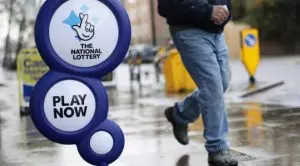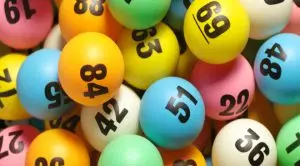 The operator of the National Lottery – Camelot UK – has revealed that its lottery ticket sales suffered a decline amid the increasing living costs. The company reported lower lottery ticket and instant-win games sales.
The operator of the National Lottery – Camelot UK – has revealed that its lottery ticket sales suffered a decline amid the increasing living costs. The company reported lower lottery ticket and instant-win games sales.
The National Lottery operator, which has recently started legal action against the UK gambling regulatory body after the UK Gambling Commission (UKGC) decided to grant the fourth licence to the Czech Republic-based operator Allwyn, announced a 3% decline in its sales to £8.1 billion in the year that ended on March 31st, 2022. The company further noted that most of the cited decline came as a result of a 7% drop in sales of National Lottery Instants, reaching £3.4 billion.
As Camelot explained, the aforementioned decline could be mostly attributed to bigger competition for customers’ attention and spending after the restrictions associated with the coronavirus pandemic lockdowns were finally lifted, as well as to the expanding economic uncertainty that has marked over the latter part of the year.
In March 2022, Camelot lost its licence to operate the National Lottery as of 2024, after spending 30 years as the NL licence holder. As Casino Guardian reported at the time, Allwyn, which currently runs lottery operations in Italy, Austria and Greece, was handed the fourth 10-year operating permit following a fierce competition process.
Camelot Reports Stable Amount of Contributions to Good Causes Despite Financial Challenges
 As mentioned above, the current holder of the National Lottery’s operating permit blamed the Covid-19 pandemic restrictions at the beginning of the year for some of its losses. The company has also mentioned the rising living costs, saying that it had slowed down the retail recovery in the country as consumers have been more careful about what they spend their money on.
As mentioned above, the current holder of the National Lottery’s operating permit blamed the Covid-19 pandemic restrictions at the beginning of the year for some of its losses. The company has also mentioned the rising living costs, saying that it had slowed down the retail recovery in the country as consumers have been more careful about what they spend their money on.
Draw-based games offered by the National Lottery performed better, although ticket sales experienced a slight decline to £4.6 billion, with the company registering fewer large EuroMillions rollovers. A total of 15 draws with a jackpot exceeding £100 million were held, in comparison to 22 in the previous year. On the other hand, online sales declined by 2.6% to £3.4 billion following the end of Covid-19 restrictions, partly because of the introduction of lower limits to online wallets and play for customers that are considered to be potentially at risk of being affected by gambling-related harm.
The National Lottery licence holder also reported that its contributions to good causes over the year amounted to £1.9 billion, which is the second-highest total ever raised by the NL.
Nigel Railton, the CEO of Camelot, revealed that over the next year the company would continue to make investments and bring innovations to respond to the ever-changing consumer demands and environment. Mr Railton further noted that the company had raised a record amount of contributions for good causes from National Lottery ticket sales, and had also made sure that a record amount of £3.1 billion was generated for society through good causes, retailer commission and lottery duty.
- Author


